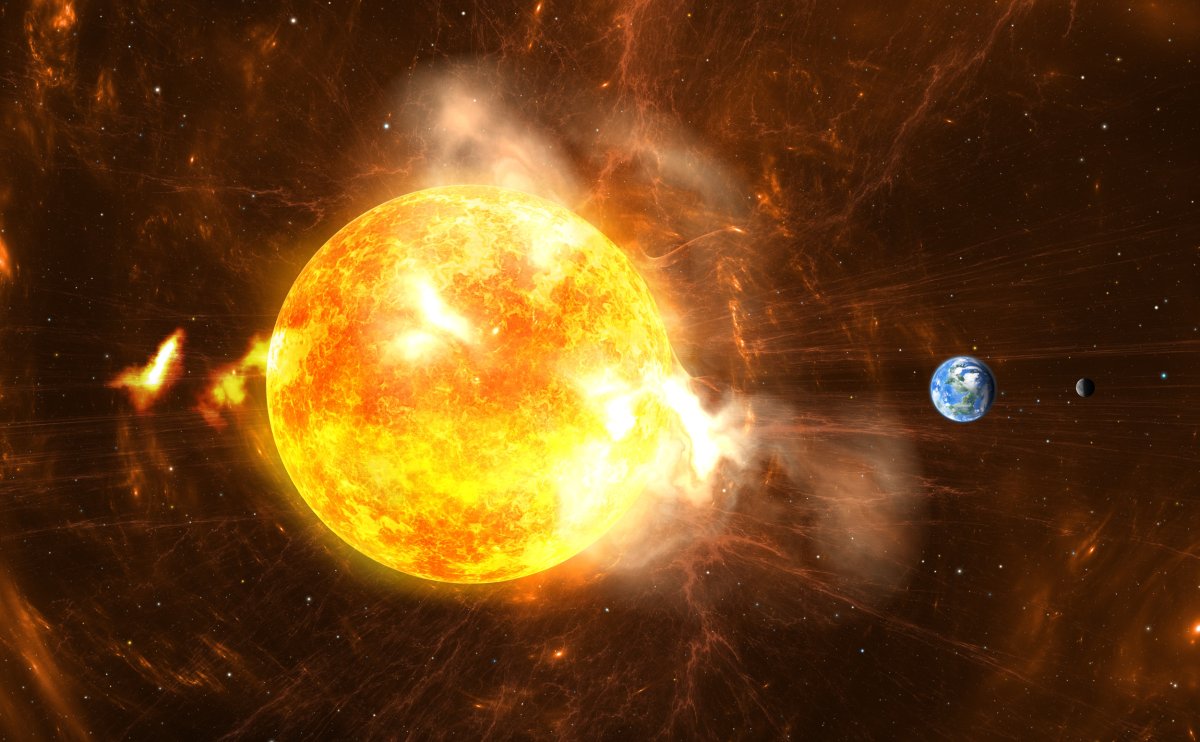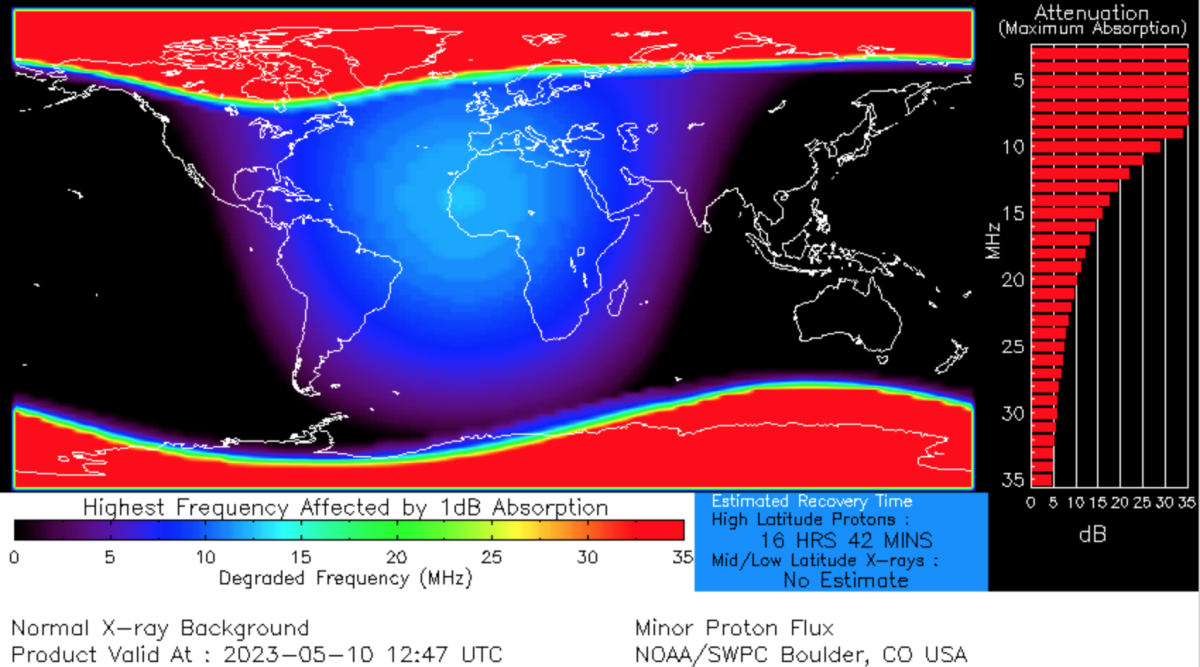The Arctic Circle is in the grip of a radio blackout due to a polar cap absorption event occurring, all thanks to the sun's activity.
This has led to radio frequencies below 15 MHz being nearly completely blacked out and most frequencies below 35 MHz being at least a little bit degraded, according to NOAA's Space Weather Prediction Center.
This polar cap absorption (PCA) event is occurring as a result of a coronal mass ejection that occurred on May 7 that is now colliding with our planet.

Coronal mass ejections, or CMEs, are huge plumes of solar plasma and magnetic field that were ejected from the sun during periods of magnetic activity. These travel through the void of space at rapid speeds—up to 1 million miles per hour—with some CMEs reaching the Earth in 15 to 18 hours, while others take several days. Sometimes, a CME also involves a solar proton event, where the sun also spits out charged protons.
The proton CME responsible for the current polar cap absorption event is thought to have been released on May 7 from the reversed-polarity sunspot AR3296, which also released a long-lasting M1.5-class solar flare at the same time.
Proton events can lead to radio blackouts when they collide with the Earth and our magnetic field. Polar cap absorption events are when the CME's protons are funneled toward the poles by the magnetic field, localizing the effects of the radio blackout. Here, the protons collide with gases in the atmosphere, temporarily increasing the density in the lower ionosphere, causing the absorption of short-wave radio signals to be blocked.

This prevents the radio signals from reaching the upper ionosphere, which they need to bounce off of in order to travel to their receiver.
These blackouts can affect civil aviation, as long-range communications with aircraft are degraded over large remote areas or oceans where there are no ground-based radio networks.
"High-frequency is a primary method for aircraft in these areas to communicate with air traffic control. For example, flights over the North Atlantic will communicate with oceanic air traffic control centers provided by Canada, Iceland and U.K./Ireland," Mike Hapgood, a space weather scientist at the STFC Rutherford Appleton Laboratory in the U.K, previously told Newsweek.
"Many aircraft also have satcom as backup, but high-frequency is mandatory as part of international agreed procedures. So high-frequency blackouts can disrupt those links, but in general only for a few tens of minutes, so the industry can work round that disruption. These blackouts will not affect take-off and landing as aircraft will then use short-range VHF radio links."
As the sun approaches its next solar maximum, due to occur in 2025, the sun is forecast to increase in activity. Twenty-four complete solar cycles have been recorded since observations began in 1755, with the current cycle being Solar Cycle 25.
Do you have a tip on a science story that Newsweek should be covering? Do you have a question about radio blackouts? Let us know via science@newsweek.com.
Uncommon Knowledge
Newsweek is committed to challenging conventional wisdom and finding connections in the search for common ground.
Newsweek is committed to challenging conventional wisdom and finding connections in the search for common ground.
About the writer
Jess Thomson is a Newsweek Science Reporter based in London UK. Her focus is reporting on science, technology and healthcare. ... Read more
To read how Newsweek uses AI as a newsroom tool, Click here.








